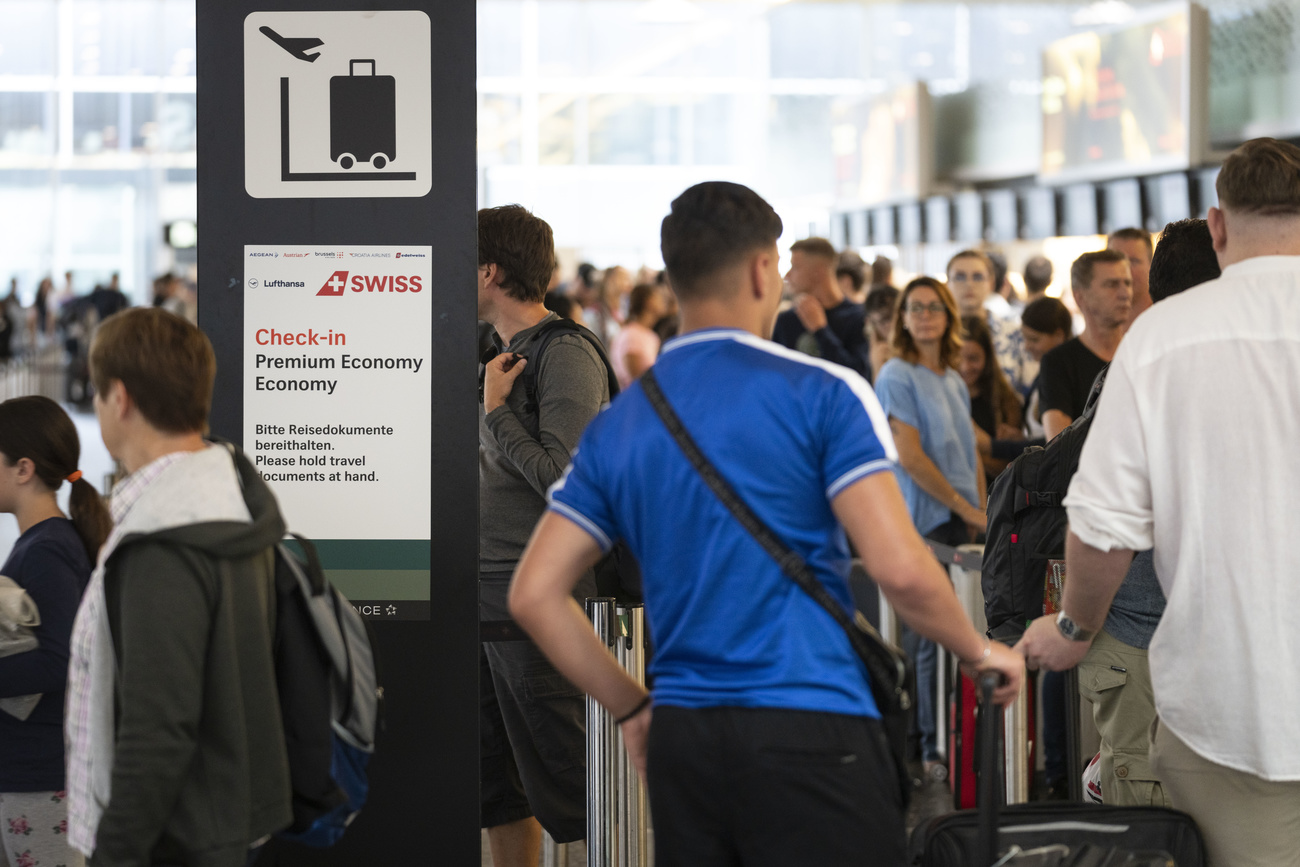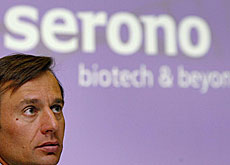Merck deal safeguards Serono’s “Swissness”

A deal to sell biotechnology company Serono to German rival Merck hinged on an agreement to keep the Swiss firm based in Geneva, an analyst has told swissinfo.
The Bertarelli family reportedly dropped negotiations with other suitors when Serono was up for sale earlier this year before deciding to sell its majority 64.5 per cent stake on Thursday.
The ailing company hired Goldman Sachs to find a buyer last December only to announce surprisingly four months later that it was looking to expand with acquisitions. The proposed sale to Merck is thus the second u-turn this year.
Lombard Odier Darier Hentsch analyst Bob Poole believes the latest decision is the best way for Serono to dig itself out of a hole while preserving its Swiss identity.
“The Bertarelli family is so entangled in Geneva society that safeguarding jobs and maintaining the Serono name in the city was perhaps the trigger that led to the decision to sell,” he told swissinfo.
“The rumours earlier this year were that other pharmaceutical companies were willing to buy Serono at the same price. But perhaps the deals broke down because the large Serono plants in Geneva would have had to shut down. Some of the larger pharmaceutical companies may have been looking to strip down some assets.”
Beneficial
Paul Dembinski, professor of economics at Fribourg University, is convinced that the sale of Serono could even be advantageous for Switzerland.
“The company might benefit from the strong link to big business and an exchange of know-how and staff. This could also boost Switzerland’s role as a hub for biotechnology,” he told swissinfo.
He added that the deal was another example for the trend to mergers on a global level.
Current Serono chief executive Ernesto Bertarelli is the third generation Bertarelli to run the company that specialises in fertility and multiple sclerosis (MS) treatments.
Ernesto took over at the helm in 1996 and the company initially flourished under his stewardship, particularly with the introduction of MS drug Rebif.
But the failure to produce a follow-up blockbuster and increasing competition from bigger pharmaceuticals in its niche areas led to a decline in Serono’s recent fortunes. On top of that, the company was fined $704 million (SFr877 million) in the US last year after admitting to illegally promoting its Aids drug Serostim.
Stormy waters
Ernesto has also come under fire from certain quarters for spending time on his Alinghi sailing team that will defend its America’s Cup title next year.
“With any family-owned business, if the chief executive is one of the family, they may have more freedom to pursue hobbies than in a publicly owned company that is dependent on the goodwill of shareholders,” Zurich Cantonal Bank analyst Yasmin Ersan told swissinfo.
“He has been away from his company with his sailing project. Of course there are other members of the management team around, but it is not what a shareholder would expect from a CEO.”
But Bob Poole defended Bertarelli’s record in charge of Serono. “It must be remembered that Serono is still doing well. It is the future threat that has led to dampening of share prices,” he said.
“We should give [Bertarelli] credit that he made Rebif a very large product. The threat is that the big pharmaceuticals are muscling in and there are new rival therapies to Rebif being developed such as oral MS drugs.”
Poole added that other traditional family-owned businesses may also have to bow to the same threats.
“This will not be the last example of families who are under a lot of pressure selling their controlling stake, particularly in the pharmaceutical sector. There are a lot of things that will probably happen going forward,” he said.
“Bertarelli is going to try to win the America’s Cup with Switzerland next year and maybe now his chances are higher because he can concentrate fully on that.”
swissinfo, Matthew Allen
Serono was founded in 1906 in Rome by Cesare Serono and was originally called the Serono Pharmacological Institute. The company first made its mark producing fertility drugs.
In 1977 the company was moved to Geneva by then chief executive Fabio Bertarelli, Ernesto’s father.
Serono is in the business of developing proteins, antibodies and small molecules to treat serious medical conditions. It is active in neurology, reproductive health and growth hormones.
Its leading product is the drug Rebif, which treats multiple sclerosis; worldwide sales reached nearly $1.3 billion (SFr1.6 billion) in 2005. Total revenues in 2005 increased by 5.2 per cent to $2.586 billion, of which sales were $2.339 billion.
Ernesto Bertarelli became a household name in Switzerland and yachting circles when his Alinghi boat won the America’s Cup in 2003.
Under the terms of the takeover deal the new company will be called Merck-Serono and will continue to have its headquarters in Geneva. The United States base will remain in Boston.
The deal values Serono at SFr16.1 billion ($12.9 billion) and gives Merck 75.5 per cent of voting rights in the Swiss company. Based on 2005 figures, the new company will have sales of SFr12.2 billion.
The proposed takeover is still subject to regulatory and shareholder approval.

In compliance with the JTI standards
More: SWI swissinfo.ch certified by the Journalism Trust Initiative













You can find an overview of ongoing debates with our journalists here . Please join us!
If you want to start a conversation about a topic raised in this article or want to report factual errors, email us at english@swissinfo.ch.